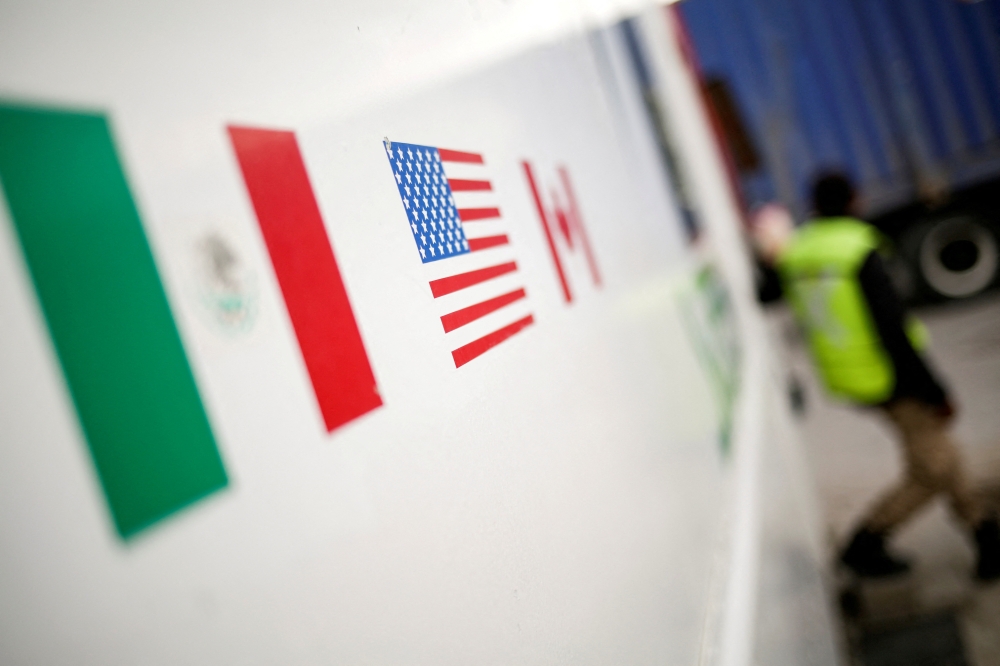

Companies, consumers and farmers across North America braced on Friday for US President Donald Trump to impose 25 per cent tariffs on Canadian and Mexican imports within hours, moves that could disrupt nearly $1.6 trillion in annual trade.
Trump has set a Saturday deadline to impose the punitive duties over his demands that Canada and Mexico take stronger action to halt the flow of illegal immigrants and the deadly opioid fentanyl and precursor chemicals into the US.
Trump said on Thursday he still is considering an additional 10 per cent tariff on Chinese imports to punish Beijing for its part.
Industry groups were furiously seeking any scrap of information on how Trump plans to implement the tariffs -- whether he would impose the full 25 per cent with immediate effect, or announce them and delay their implementation to allow some time for negotiations over steps that the countries could take.
Even immediate imposition would require two to three weeks of public notice before US Customs and Border Protection could begin collections, based on past tariff actions.
Trump said on Thursday that he would soon decide whether to apply the tariffs to imports of Canadian and Mexican oil, an indication that he may be concerned about their impact on gasoline prices. Crude oil is the top US import from Canada and among the top five from Mexico, according to US Census Bureau data.
Trump's top trade advisor Peter Navarro said on Friday that tariff revenue will help pay for the extension of Trump's 2017 tax cuts, which total some $4 trillion and expire this year.
"President Trump has a great new tax cut, the largest in history, and tariffs can easily pay for that," Navarro said on CNBC.
Two sources familiar with the matter said that Trump was expected to invoke the International Emergency Economic Powers Act (IEEPA) as the legal basis for the tariffs, declaring a national emergency over fentanyl overdoses that killed nearly 75,000 Americans in 2023 and illegal immigration.
The statute, enacted in 1977 and modified after the 9/11 attacks in 2001, gives the president broad powers to impose economic sanctions in a crisis.
Among the trade law tools at Trump's disposal, IEEPA would give him the fastest path to imposing broad tariffs, as others require lengthy investigations by the Commerce Department or the US Trade Representative's office.
Trump's nominees to run those agencies, Wall Street CEO Howard Lutnick and trade lawyer Jamieson Greer, have not been confirmed by the U.S. Senate. Trump used IEEPA to back up a 2019 tariff threat against Mexico over border issues.
Imposing the duties would tear up a 30-year free trade system that has built a highly integrated North American economy, with auto parts sometimes crossing borders several times before final assembly.
Economists and business executives have warned that the tariffs would spark major increases in the prices of imports such as aluminum and lumber from Canada, fruits, vegetables, beer and electronics from Mexico and motor vehicles from both countries.
Tariffs are paid by firms that import goods and pass the costs on to consumers or accept lower profits, economists say.
"President Trump’s tariffs will tax America first," said Matthew Holmes, public policy chief at the Canadian Chamber of Commerce. "From higher costs at the pumps, grocery stores and online checkout, tariffs cascade through the economy and end up hurting consumers and businesses on both sides of the border. This is a lose-lose."
Oman Observer is now on the WhatsApp channel. Click here



